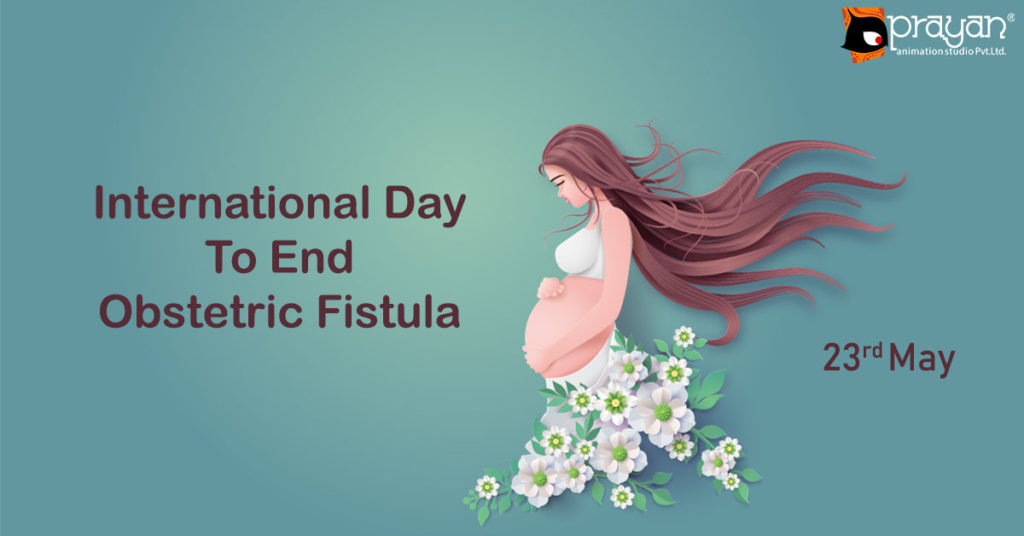Every year on May 23rd, the International Day to End Obstetric Fistula raises awareness of this medical issue and mobilizes worldwide support for child-bearing women.
An obstetric fistula is an abnormal opening between a woman’s genital tract and their rectum. One of the primary causes of a fistula is obstructed labor. This is also known as labor dystocia. Obstructed labor occurs when an unborn baby is physically blocked from exiting the pelvis. Other causes of obstetric fistulas include prolonged labor, poor access to medical care, malnutrition, and teenage pregnancy.
According to the World Health Organization (WHO), obstetric fistula affects up to 100,000 women a year. Most of these women live in poverty. About 2 million young women in Asia, sub-Saharan Africa, the Arab States region, and Latin America have untreated obstetric fistulas. These women suffer from incontinence, social segregation, shame, and other health issues. For some, the condition is fatal.
Obstetric fistulas are largely avoided by delaying the age of having a baby and timely access to obstetric care. During obstructed labor, a C-section can help prevent obstetric fistula. A simple surgery treats obstetric fistulas. The surgery costs about $600. Sadly, many women needing this surgery cannot afford it.
What is obstetric fistula?
Obstetric fistula is a serious complication of childbirth, resulting in a painful injury and disability for a woman. It is caused by prolonged obstructed labour and leads to infection, incontinence and, if untreated, even death. Women affected by obstetric fistula suffer physical and psychological pain as well as social stigma, exclusion and shame. Fistula affects over two million women worldwide, mostly in sub-Saharan Africa and Asia.
With more action focused on providing quality management at an early stage of labour as well as delivering timely and affordable access to surgery for women already affected, the adverse effects of this condition can be eradicated.
The RCOG believes strongly that no woman should have to suffer the devastating impact of obstetric fistula
The RCOG is supporting the UNFPA campaign by raising awareness of obstetric fistula and calling for positive action to enable women to access the quality care they deserve. We want to end the suffering of women from obstetric fistula within a generation.
The RCOG believes that we must vocalise our support for women with obstetric fistula to let them know they are not suffering in obscurity. We must encourage and support the organisations, hospitals and doctors committed to providing fistula surgery to help them grow in scale, scope and sustainability. The strongest voices to support women with obstetric fistula are fellow women who have been cured.
Women with the condition face immense physical and psychological difficulties. This is compounded if they are rejected by their family and community. To prevent this happening, the RCOG actively supports improvements in the quality of the health care women can access. Our work goes beyond training and advocates that all health care professionals should take a human rights approach to the health care they provide, affording women the dignity and respect within health care they deserve. Our aim is to strengthen services in this way too so that more women readily access trained maternal health providers.
The RCOG is working with partners in Nigeria and Uganda to prevent fistula through training health care professionals including increasing awareness amongst providers of how fistula affects women and girls long-term both physically and psychologically.


